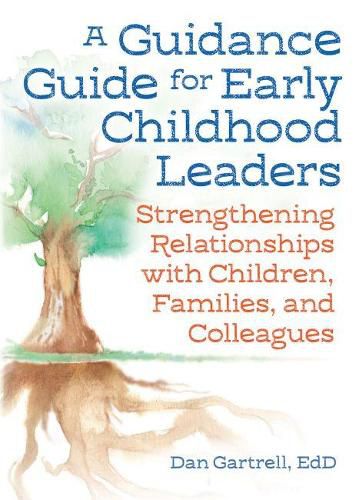Readings Newsletter
Become a Readings Member to make your shopping experience even easier.
Sign in or sign up for free!
You’re not far away from qualifying for FREE standard shipping within Australia
You’ve qualified for FREE standard shipping within Australia
The cart is loading…






In this follow-up to Guidance for Every Child, author Dan Gartrell, EdD, expands on the advice broached in that book-that children need guidance rather than discipline. Guidance is teaching for healthy emotional and social development. On a day to day basis as conflicts occur, guidance is teaching children to learn from their mistakes, rather than punishing them for the mistakes they make; helping children learn to solve their problems, rather than punishing children for having problems theycannot solve.
In A Guidance Guide for Early Childhood Leaders, Dan explores secure relationships as the foundation for guidance and how to build them with children, families, and colleagues. He gives examples of how children’s mistaken behavior (not misbehavior) can play out in the classroom and provides strategies on how early childhood professionals can help others to gain the emotional health they need to be socially responsive, and then support the social skills they need to build relationships and solve problems cooperatively.
$9.00 standard shipping within Australia
FREE standard shipping within Australia for orders over $100.00
Express & International shipping calculated at checkout
In this follow-up to Guidance for Every Child, author Dan Gartrell, EdD, expands on the advice broached in that book-that children need guidance rather than discipline. Guidance is teaching for healthy emotional and social development. On a day to day basis as conflicts occur, guidance is teaching children to learn from their mistakes, rather than punishing them for the mistakes they make; helping children learn to solve their problems, rather than punishing children for having problems theycannot solve.
In A Guidance Guide for Early Childhood Leaders, Dan explores secure relationships as the foundation for guidance and how to build them with children, families, and colleagues. He gives examples of how children’s mistaken behavior (not misbehavior) can play out in the classroom and provides strategies on how early childhood professionals can help others to gain the emotional health they need to be socially responsive, and then support the social skills they need to build relationships and solve problems cooperatively.